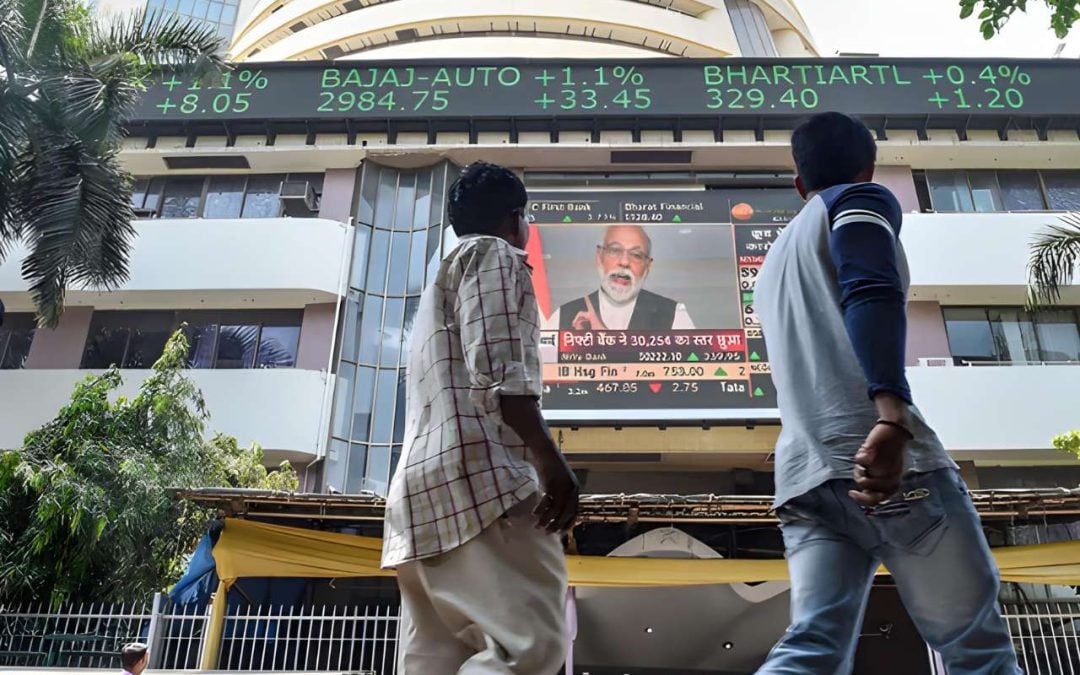When a Stock has high DII (Domestic Institutional Investors) holding, it shows confidence in the company’s fundamentals, Investors’ long-term horizon, positive market perception, alignment of the company with domestic factors, and potential future growth prospects.
Here is the list of 5 Stocks where DIIs hold over 35 percent stake;
1. TeamLease Services
Established in 2000 and headquartered in Bengaluru, TeamLease Services Limited is a leading Indian recruitment and human resources (HR) services company. It offers a comprehensive range of HR services, including staffing solutions (temporary and permanent), payroll processing, regulatory compliance, vocational training, and assessments.
The company operates across various sectors and is known for its role in flexible staffing, even running a Vocational University and a National Apprenticeship program.
As of the latest shareholding data, Domestic Institutional Investors (DIIs) hold a 47.65 percent stake in the company, reflecting strong domestic investor confidence. Foreign Institutional Investors (FIIs) hold a 11.01 percent stake in the company.
2. Medi Assist Healthcare
Incorporated in 2000 and headquartered in Bengaluru, Medi Assist Healthcare Services Limited is a health-tech and insurance-tech company that primarily functions as a Third-Party Administrator (TPA) for health insurance. Medi Assist manages health benefits for employers, retail members, and public health schemes, primarily serving insurance companies.
As of the latest shareholding data, Domestic Institutional Investors (DIIs) hold a 42.91 percent stake in the company, reflecting strong domestic investor confidence. Foreign Institutional Investors (FIIs) hold a 13.26 percent stake in the company.
3. Restaurant Brands Asia
Restaurant Brands Asia Limited (RBA) is an Indian company engaged in the business of quick-service restaurants (QSRs). It holds the franchisee rights for the Burger King brand. The company focuses on offering food products customised to local tastes and preferences. Restaurant Brands Asia is one of the fastest-growing international QSR chains in India
As of the latest shareholding data, Domestic Institutional Investors (DIIs) hold a 40.45 percent stake in the company, reflecting strong domestic investor confidence. Foreign Institutional Investors (FIIs) hold a 20.37 percent stake in the company.
4. Gateway Distriparks
Incorporated in 1994 and headquartered in Mumbai, Gateway Distriparks Limited is a leading integrated logistics service provider in India. GDL operates through three synergistic verticals: Container Freight Stations (CFS), Inland Container Depots (ICD) with rail transportation, and Cold Chain Logistics (through its subsidiary Snowman Logistics).
As of the latest shareholding data, Domestic Institutional Investors (DIIs) hold a 39.34 percent stake in the company, reflecting strong domestic investor confidence. Foreign Institutional Investors (FIIs) hold an 8.43 percent stake in the company.
5. GTL Infrastructure
Founded in 2004, headquartered in Navi Mumbai, Maharashtra, GTL Infrastructure is an Indian telecom tower company that focuses on providing shared passive telecom infrastructure to wireless telecom operators across India. The company owns, deploys, and manages a large portfolio of telecom towers and communication structures
As of the latest shareholding data, Domestic Institutional Investors (DIIs) hold a 35.20 percent stake in the company, reflecting strong domestic investor confidence. Foreign Institutional Investors (FIIs) hold a 0.05 percent stake in the company.
Written By Abhishek Das
Disclaimer

The views and investment tips expressed by investment experts/broking houses/rating agencies on tradebrains.in are their own, and not that of the website or its management. Investing in equities poses a risk of financial losses. Investors must therefore exercise due caution while investing or trading in stocks. Trade Brains Technologies Private Limited or the author are not liable for any losses caused as a result of the decision based on this article. Please consult your investment advisor before investing.


